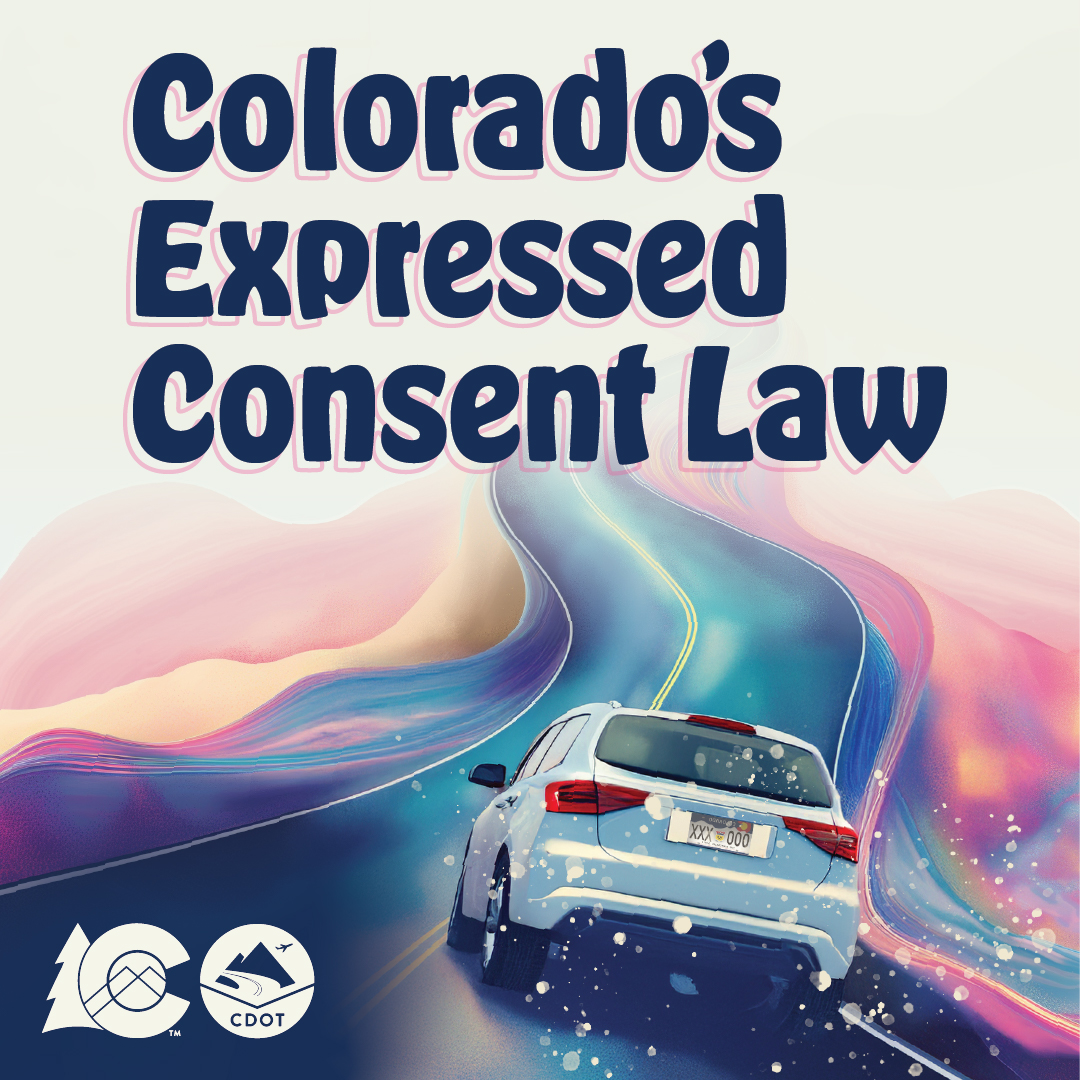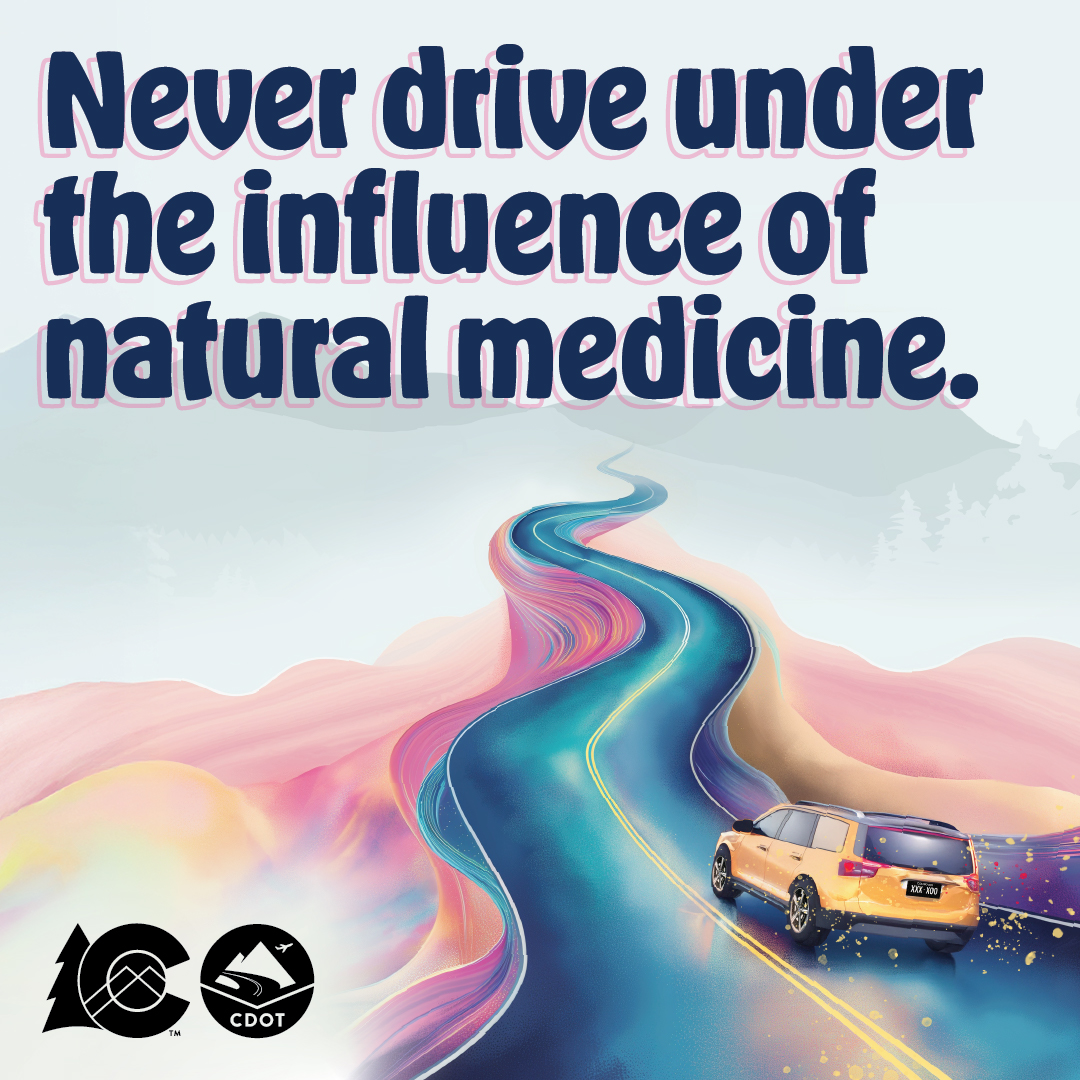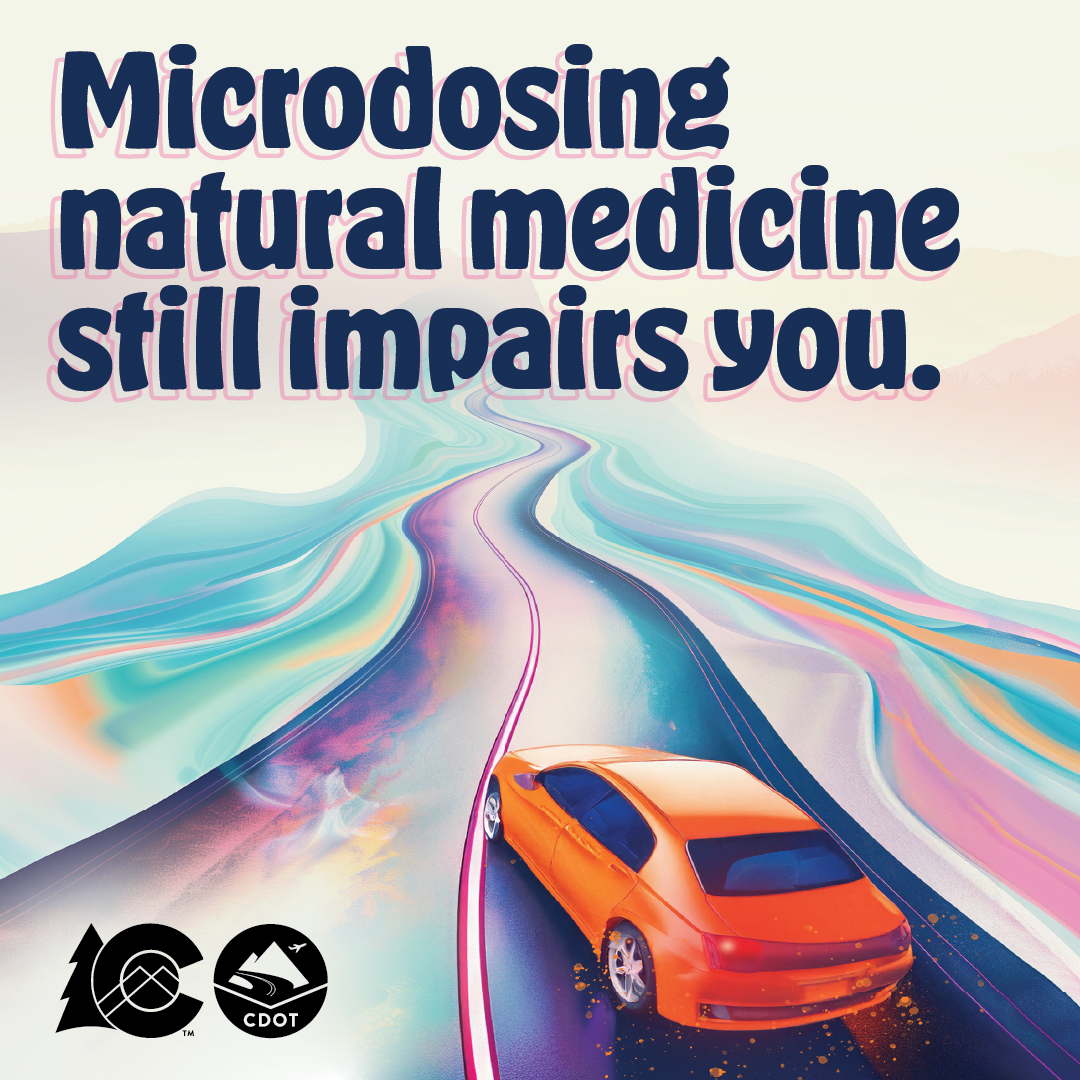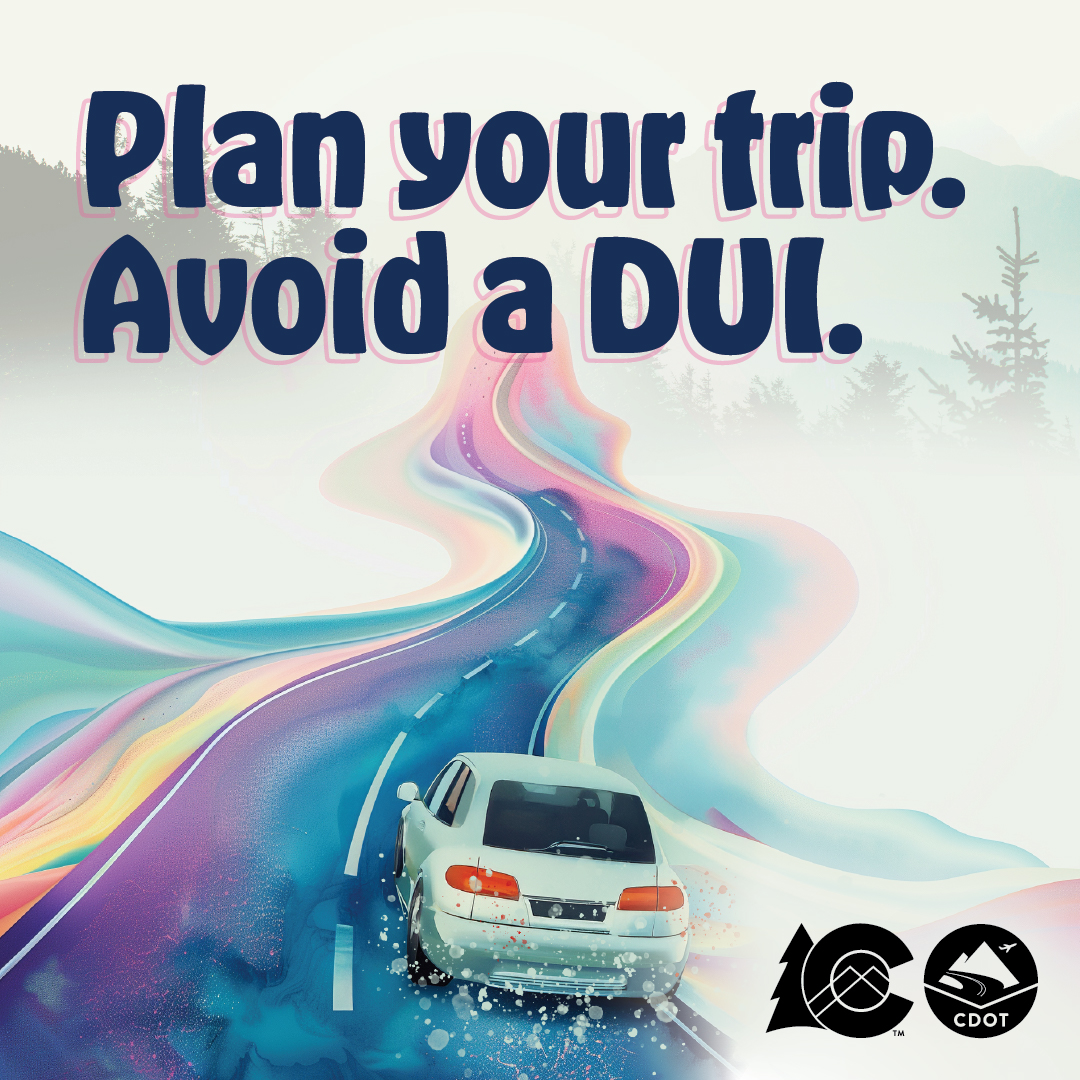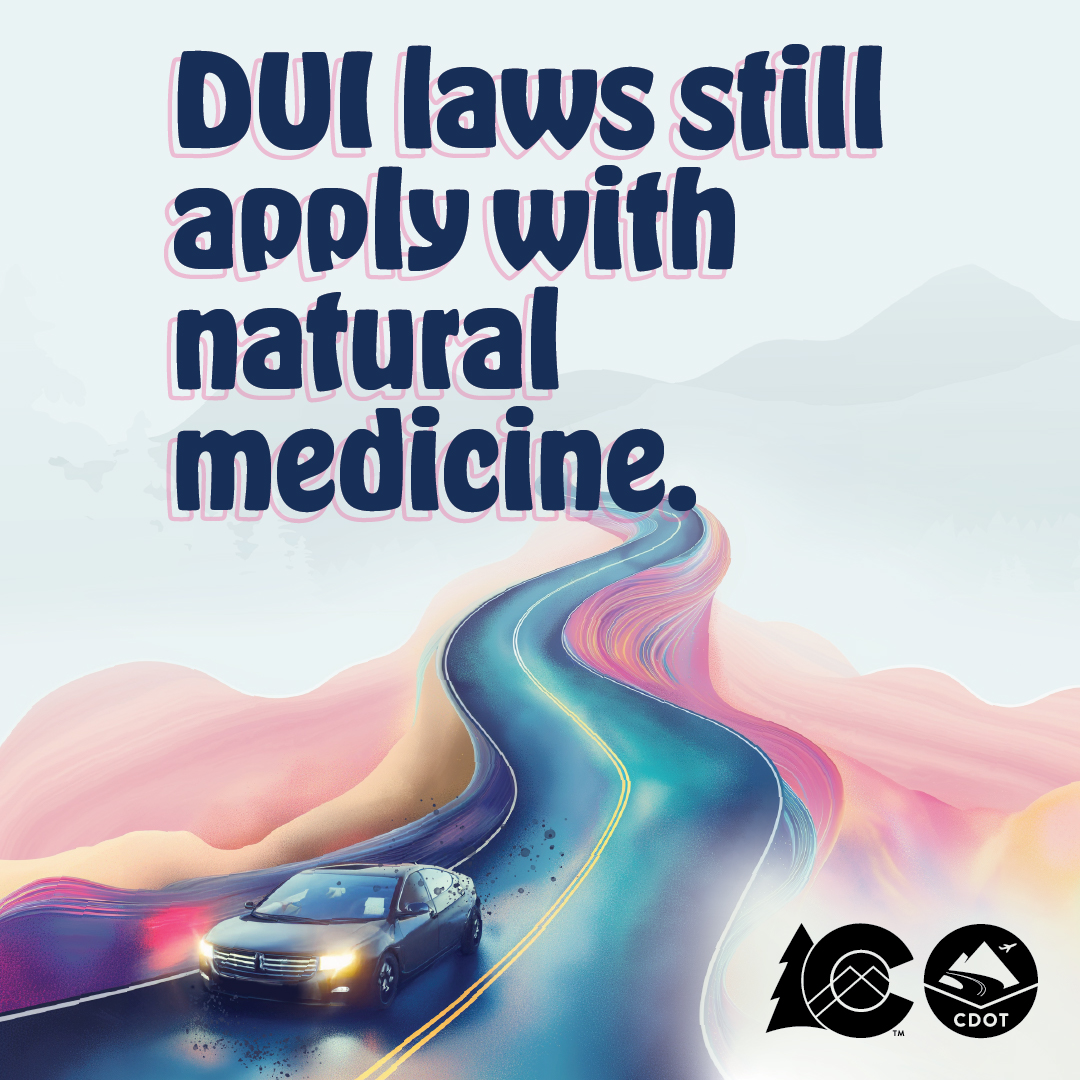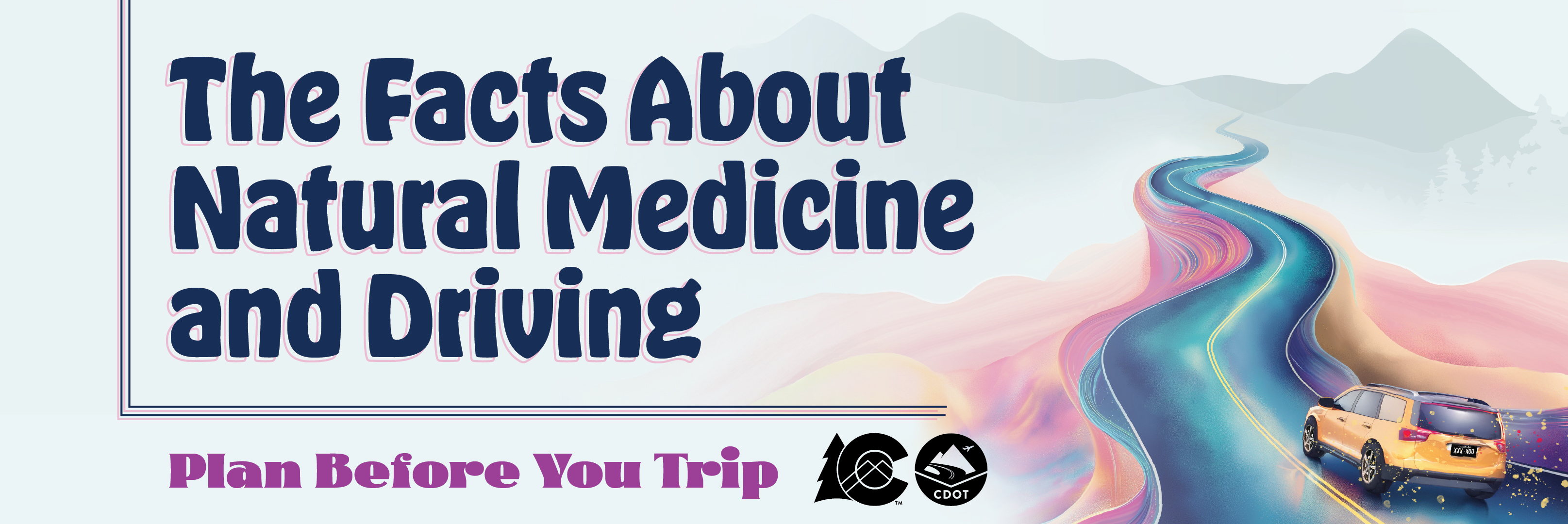CDOT Launches Campaign: Driving After Using Magic Mushrooms or Psychedelics in Colorado Is Illegal
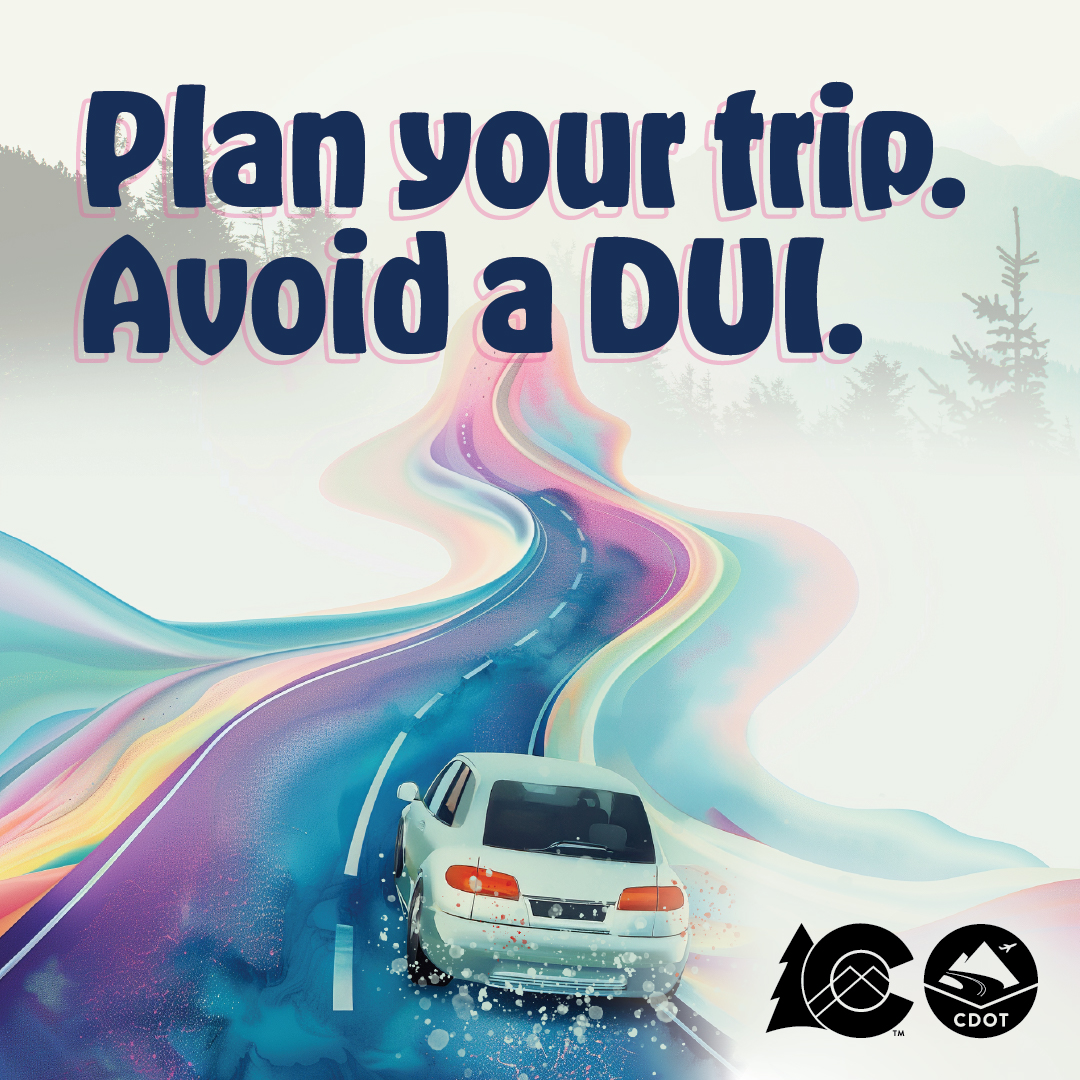
Description: With the rise of licensed natural medicine healing centers and growing access to psychedelics like psilocybin (“magic mushrooms”), DMT, ibogaine, and mescaline, the Colorado Department of Transportation (CDOT) is warning residents that driving under the influence remains illegal and dangerous. While these substances may now be decriminalized or legal in regulated settings, their effects — including slowed reaction time, hallucinations, impaired thinking, and loss of motor control — can make driving unsafe even after the experience seems to wear off. CDOT’s new public education campaign urges Coloradans to plan a sober ride before using natural medicines, reminding the public that impaired driving laws apply to alcohol, cannabis, pharmaceuticals, and psychedelics alike.
“Magic Mushrooms” May Be Decriminalized, but Driving After Use is Illegal
The number of licensed healing centers and businesses is growing
Statewide — With Colorado's new laws around natural medicine and the opening of licensed healing centers to administer natural psychedelic therapies statewide, the Colorado Department of Transportation is launching a public education campaign on the risks of driving under the influence of natural medicine, including psychedelics like “magic mushrooms.”
Although psilocybin and other natural medicines like dimethyltryptamine (DMT), ibogaine and mescaline (excluding peyote) are now legal to use at home or at a licensed healing center, driving under the influence of any impairing substance — whether alcohol, cannabis, pharmaceuticals or psychedelics — is both illegal and dangerous. CDOT’s new educational campaign seeks to reduce impaired-driving crashes and fatalities by encouraging Colorado residents to plan for a sober ride before consuming psychedelics or regulated natural medicine.
The effects of natural medicines and psychedelics, including slowed reaction time, visual and auditory hallucinations, disordered thinking and loss of muscle control, may significantly affect a driver’s ability to operate a vehicle safely, even if the effects feel diminished after the “trip”, or psychedelic experience, ends.
.png)
“With more people exploring natural medicines in Colorado, it’s important to understand how these substances can impact driving performance and the ability to react in critical situations,” said Darrell Lingk, Director of CDOT’s Office of Transportation Safety. “Even if you feel fine, psychedelics may affect your perception and lead to risky decisions like speeding or missing traffic signals. We want everyone to stay safe.”
To date, the Colorado Department of Revenue’s (DOR) Natural Medicine Division has provided licenses to 21 healing centers, 97 natural medicine business owners and 67 handlers (employees) in the state. As the number of healing centers and licensed facilities in Colorado continues to grow, CDOT is determined to educate consumers and keep crash fatalities caused by psychedelics at zero.
“Similar to Colorado’s cannabis framework, we appreciate the strong interagency coordination in implementing the state’s new Natural Medicine Program," said Dominique Mendiola, Senior Director for the Department of Revenue’s Natural Medicine Division. "This is particularly critical when it comes to acknowledging what's legal for adults in Colorado, while reinforcing best practices for responsible consumption. We appreciate our partnership with CDOT in setting standards that can lead the nation for both personal use and participation in this new regulated framework.”
Collaboration with law enforcement, the natural medicine community and other state agencies is important, CDOT says. The department has worked closely with the Colorado Department of Revenue’s Natural Medicine Division, the Colorado Department of Regulatory Agencies’ Natural Medicine Program, the Colorado Department of Public Health and Environment, the Colorado Department of Public Safety, the Governor’s Office, Rocky Mountain Poison & Drug Safety, and research and health advocacy institutions in the psychedelics space to develop campaign resources.
“One thing many people don’t think about is combining substances,” says Sgt. Sparks. “Let’s say you go to a concert and micro-dose mushrooms and have one or two beers, you might not think you’re too impaired to drive, but you likely are. And you’re at serious risk of a DUI. Just don’t take the chance.”
CDOT will share educational materials with licensed facilities, regulatory agencies, and stakeholders in law enforcement, prevention and public health. Resources will include a fact sheet, rack card and social media graphics.
Important facts include:
-
The effects of some natural medicines can last for many hours or even days. While a "trip" may feel over, lingering effects, such as slowed reaction time and tiredness, may impair your ability to drive for longer than you think. Plan Your Trip by making sure you have a driver who hasn’t used any impairing substance within 24 hours.
-
You can get a DUI for driving impaired by psychedelics just like with alcohol. Drug Recognition Expert (DRE) and Colorado State Patrol Sergeant Jason Sparks emphasizes that law enforcement is trained to spot impairment from any impairing substance, including natural medicine. And, that a DUI for psychedelic substances (regulated or not) carries the same penalties as an alcohol DUI, including hefty fines, license suspension and jail time.
-
Even when used medicinally or for ceremonial purposes, it’s still illegal to drive under the influence of psychedelics. Unlimited Sciences, a Colorado-based psychedelic research nonprofit, believes the natural medicine community has a shared responsibility to keep everyone safe on the road. “As advocates for natural medicine, we have a shared responsibility to keep our communities safe. That means making the conscious choice to never drive while impaired,” said Unlimited Sciences Executive Director Katie Pickard.
-
Before consuming regulated natural medicines at a licensed healing center, the state requires participants to fill out a Transportation Plan form. The document confirms that a participant has access to safe transportation to and from their administered session, regardless of the amount of natural medicine consumed.
Visit CDOT’s natural medicine website for more information about the risks of driving under the influence of psychedelics. The website also includes resources on public transportation, ride-sharing options and how to plan a safe trip after consuming psychedelics. Rocky Mountain Poison & Drug Safety has a hotline open to the public for questions regarding natural psychedelics or other impairing substances available at 1-800-222-1222. For broader information about state regulation, licensing and safety, as well as a healing center directory and facilitator resources, visit DOR’s Natural Medicine page.
.png)


